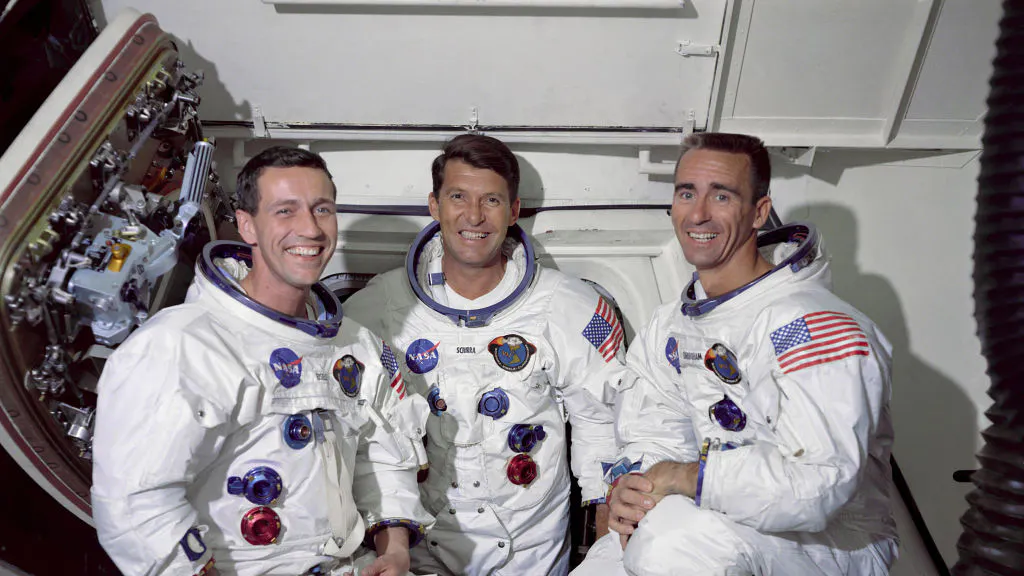Walter Cunningham, the last surviving member of the Apollo 7 mission and a Korean War veteran, has died in a Houston hospital at 90.
According to a family spokesman, Jeff Carr, Cunningham died “from complications of a fall, after a full and complete life.”
“We would like to express our immense pride in the life that he lived, and our deep gratitude for the man that he was – a patriot, an explorer, pilot, astronaut, husband, brother, and father. The world has lost another true hero, and we will miss him dearly,” Cunningham’s family said in a statement.
Cunningham, born on March 16, 1932, in Creston, Iowa, enlisted in the Navy in 1951, where he served on active duty with the Marines. In Korea, he completed 54-night missions as a fighter pilot.
Following his military service, Cunningham worked for the Rand Corporation, where he researched Earth’s magnetosphere and worked on classified defense studies.
In 1963, he joined NASA’s third astronaut class and would eventually end up assigned to the Apollo 7 mission, the first manned Apollo mission. The mission came on the heels of a tragic January 1967 accident at Cape Kennedy, Florida, that killed three astronauts, and is seen as a crucial precursor to the moon landing.
Apollo 7 launched from Florida in October 1968 with astronauts Cunningham, Wally Schirra, and Donn Eisele on board. During the 11-day mission, they would complete 163 orbits around the Earth, eight technical tests, simulations for docking and rendezvous maneuvers, and broadcast live on television back to Earth. On the return, they landed in the ocean, about 325 miles south of Bermuda.

Credit: Bettmann / Contributor via Getty Images.
“We carried the nation’s hope with us,” Cunningham wrote in his 1977 memoir. “Twenty-one months before, a fire on the very pad from which we launched had killed three of our teammates. One more setback now, and the prospects of landing a man on the moon before 1970 would be gone forever.”
Throughout his life, Cunningham flew 40 different aircraft, accumulating 4,500 hours of flight time.
“Walt Cunningham was a fighter pilot, physicist, and an entrepreneur – but, above all, he was an explorer. On Apollo 7, the first launch of a crewed Apollo mission, Walt and his crewmates made history, paving the way for the Artemis Generation we see today,” NASA Administrator Bill Nelson said in a statement.
After his work with NASA, Cunningham finished a doctorate in physics without a thesis from Harvard Graduate School of Business. He would go on to become involved in real estate and business while maintaining an interest in science and space exploration.
In his later years of life, he became known for his views on global warming, as he argued that humans had little impact on the environment. “After years of looking, I have not found one piece of empirical evidence that man-made CO2 has a significant impact on global climate,” he wrote in a 2012 Houston Chronicle op-ed.
Cunningham is a member of numerous hall-of-fame organizations, including the Astronaut Hall of Fame and the Iowa Aviation Hall of Fame. He was also given the NASA Exceptional Service Medal and NASA Distinguished Service Medal.

.png)
.png)

